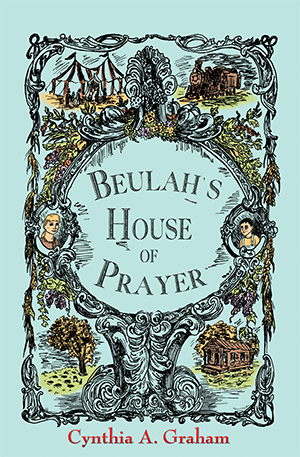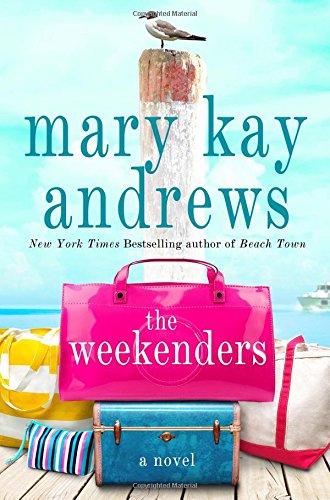 It is an excellent package overall and would make an ideal complement to an elementary textbook on tactics. You could think of it as being a kind of missing workbook. By diligently attempting to solve each position you will undoubtedly increase your tactical skill.
It is an excellent package overall and would make an ideal complement to an elementary textbook on tactics. You could think of it as being a kind of missing workbook. By diligently attempting to solve each position you will undoubtedly increase your tactical skill.
A review of Year of the Wasp by Joel Deane
 Though the narrative presents a fast-paced story of ambulance, medication, confusion and return, we’re in the realm of poetry, which can be dream-like, with a multitude of simultaneous meanings. The poems operate on several levels at once, from the struggles of a failed body and its attempts to come back from the nightmare of motor neurone degradation, to the writer’s daily struggle to make sense of language and the self against an increasingly incomprehensible world.
Though the narrative presents a fast-paced story of ambulance, medication, confusion and return, we’re in the realm of poetry, which can be dream-like, with a multitude of simultaneous meanings. The poems operate on several levels at once, from the struggles of a failed body and its attempts to come back from the nightmare of motor neurone degradation, to the writer’s daily struggle to make sense of language and the self against an increasingly incomprehensible world.
A review of Beulah’s House of Prayer by Cynthia A Graham
 I would categorize this book as historical fiction first and foremost, though it is touted as magical realism. I had this in the back of my mind as I read, but other than Beulah’s mysterious arrival in town and her omnipresence for most of the rest of the book, the “magical realism” elements weren’t obvious—until the end. This is where Graham’s gift of storytelling shines through
I would categorize this book as historical fiction first and foremost, though it is touted as magical realism. I had this in the back of my mind as I read, but other than Beulah’s mysterious arrival in town and her omnipresence for most of the rest of the book, the “magical realism” elements weren’t obvious—until the end. This is where Graham’s gift of storytelling shines through
A review of Dream Stalker by Mari Bailey
 Mari Bailey has created an unnerving, roller coaster ride of a narrative for her readers. Dream Stalker is sure to draw young adult readers into the account and hold them spellbound while reading this attention-grabbing, suspense-filled page turner. Readers will find the work hard to put down as they devour passage after electrifying passage.
Mari Bailey has created an unnerving, roller coaster ride of a narrative for her readers. Dream Stalker is sure to draw young adult readers into the account and hold them spellbound while reading this attention-grabbing, suspense-filled page turner. Readers will find the work hard to put down as they devour passage after electrifying passage.
Interview with Dane Cobain
 The author of No Rest for the Wicked. drops by to talk about his work, his editing process, where he gets his ideas, his secret novel, his writing routine, his favourite books, best writing advice, promotion tips, and lots more.
The author of No Rest for the Wicked. drops by to talk about his work, his editing process, where he gets his ideas, his secret novel, his writing routine, his favourite books, best writing advice, promotion tips, and lots more.
Singer-songwriter Caroline Rose and the band Algiers, Jeff Buckley, PJ Harvey, and Music Culture
 Caroline Rose is one of the performers who is keeping the singer-songwriter tradition alive, one of the performers who is keeping the independence music scene a resource for liberation: so are Alabama Shakes, Arctic Monkeys, Bright Eyes, Broken Bells, Camera Obscura, The Dears, Father John Misty, Foster the People, Rhiannon Giddens, Valerie June, Frank Ocean, Josh Ritter, Savages, St. Vincent, and Vampire Weekend.
Caroline Rose is one of the performers who is keeping the singer-songwriter tradition alive, one of the performers who is keeping the independence music scene a resource for liberation: so are Alabama Shakes, Arctic Monkeys, Bright Eyes, Broken Bells, Camera Obscura, The Dears, Father John Misty, Foster the People, Rhiannon Giddens, Valerie June, Frank Ocean, Josh Ritter, Savages, St. Vincent, and Vampire Weekend.
A review of Museum of Unheard (of) Things by Roland Albrecht
 These stories, which function to cast a dim aura to the otherwise miserable objects, are “Unerhörten” in the two sense of that German word: they are “unheard” and “unheard of”—unknown and outrageous, suppressed and surprising. But for the non-German speakers, this adjective carried a third meaning: it was impossible to hear them, because all the stories could only be read in German. Until now, that is. The 78 stories in the entire collection have been translated into English by You Nakai and Alexander Booth, assembled together following the order of their weight, and published as the official catalogue raisonné of the museum.
These stories, which function to cast a dim aura to the otherwise miserable objects, are “Unerhörten” in the two sense of that German word: they are “unheard” and “unheard of”—unknown and outrageous, suppressed and surprising. But for the non-German speakers, this adjective carried a third meaning: it was impossible to hear them, because all the stories could only be read in German. Until now, that is. The 78 stories in the entire collection have been translated into English by You Nakai and Alexander Booth, assembled together following the order of their weight, and published as the official catalogue raisonné of the museum.
A review of The Civil War, A Narrative by Shelby Foote
 The Civil War, A Narrative exemplifies the awfulness, overtiredness, dirt and stench of war. It was a time of fading hope, misinterpretation, fundamental disquiet vis-à-vis the future and an anxiety that the war which everyone had hoped would end rapidly, would not. Notwithstanding the nearly 900 page enormity of the work, is an edition to be studied by serious scholars of history.
The Civil War, A Narrative exemplifies the awfulness, overtiredness, dirt and stench of war. It was a time of fading hope, misinterpretation, fundamental disquiet vis-à-vis the future and an anxiety that the war which everyone had hoped would end rapidly, would not. Notwithstanding the nearly 900 page enormity of the work, is an edition to be studied by serious scholars of history.
A review of The Weekenders by Mary Kay Andrews
 Andrews has two outstanding strengths as an author: character development and attention to detail. She takes readers right to this quiet, beautiful island and gives us a tour of its dwellings, many of which date back to the 1920’s and ‘30’s. Most of her protagonists are strong, funny, Southern women who accept their flaws and own the choices they’ve made, good or bad.
Andrews has two outstanding strengths as an author: character development and attention to detail. She takes readers right to this quiet, beautiful island and gives us a tour of its dwellings, many of which date back to the 1920’s and ‘30’s. Most of her protagonists are strong, funny, Southern women who accept their flaws and own the choices they’ve made, good or bad.
Dreams of Trouble and Transcendence: Brooke Waggoner’s Sweven
 Brooke Waggoner’s compositions acknowledge the inevitability of time, and the struggle between mundane responsibility and transcendent possibility, with love to be found or lost. On Sweven, the song “Widow Maker” seems to contain so much musical possibility—it seems both a strong statement and a kind of satire. American Songwriter (November 13, 2015) magazine made much of Brooke Waggoner’s video for the song “Widow Maker,” highlighting its scientific theme and humor.
Brooke Waggoner’s compositions acknowledge the inevitability of time, and the struggle between mundane responsibility and transcendent possibility, with love to be found or lost. On Sweven, the song “Widow Maker” seems to contain so much musical possibility—it seems both a strong statement and a kind of satire. American Songwriter (November 13, 2015) magazine made much of Brooke Waggoner’s video for the song “Widow Maker,” highlighting its scientific theme and humor.